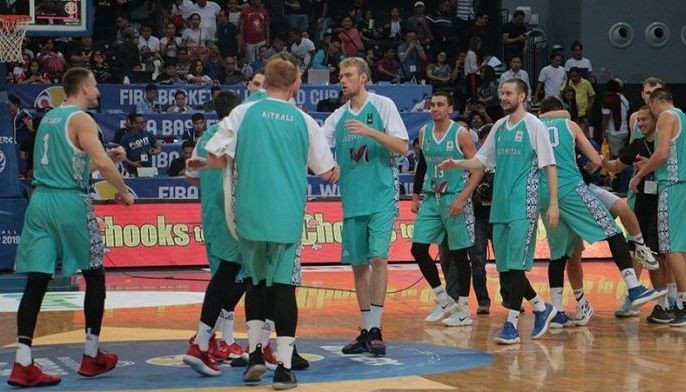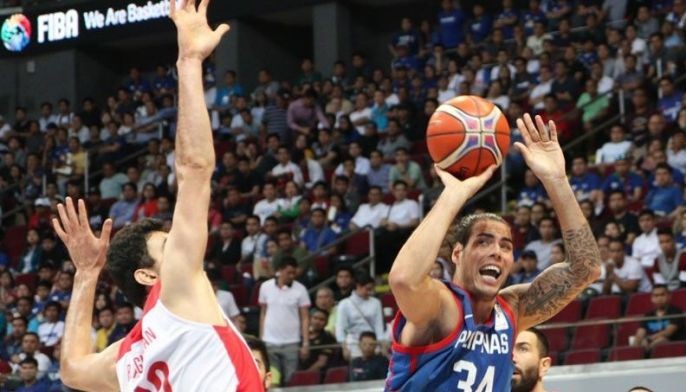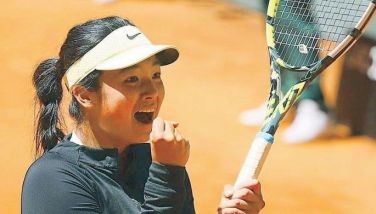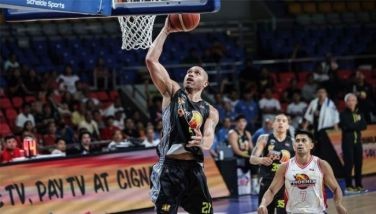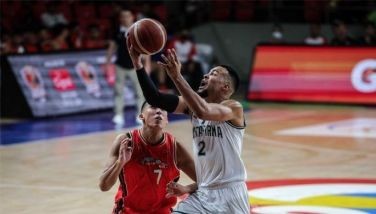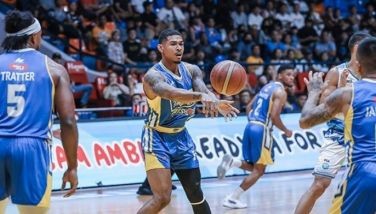Gilas still a work in progress with losses to Kazakhstan, Iran
MANILA, Philippines – The two losses in four days — 88-92 to Kazakhstan and 70-78 to Iran — are painful and humbling reminders that there is no fast-tracking success.
And the lessons are sobering. I felt for Coach Yeng Guiao, whose face was ashen when he came to meet the media following the loss. Christian Standhardinger, who always comes to play, spoke his mind and the truth.
When I look at it coldly and with no malice — this is supposedly the best we have from the SMC side — and we still lost three of our lost four games. So, that debunks any theory that the MVP Group players couldn’t get it done. Au contraire… it is a composite group made up of players from different teams. This tribal thing is just insane. That is why we cannot accomplish anything as a people and as a nation.
I remember when the Philippines won the bid to host the 2023 FIBA World Cup, some wondered how we’d fare against the Americans. My first thought was, “Whoa! Easy! We can’t even win in Asia and we’re already thinking of beating the best team in the world for the last how many decades.”
The truth of the matter is we have to work harder at this. And we can even go back to the Biblical based quote of “to whom much is given, much is required.”
I sat next to a veteran journalist the night of the Iran game and she remarked that the Iranians we’re as athletic as us. The game isn’t solely about athleticism.
And that contradicts what Guiao pointed out — that the bigs of both Kazakhstan and Iran are not slow, but mobile. They have the heft, power and speed (not as fast as the smaller players though but definitely faster than our bigs).
There are so many misconceptions on this and that.
This was a huge win for Iran. When they beat us in Tehran, Sammad Nikkhah Bahrami, our old tormentor, dumped a heap of points on us. But the other player who hurt us was Rouzbeh Arghavan, who was solid once more in relief of starting center Meisam Mirzaei. Both Iranian big men had an impact on the game. Yet even as they fouled out, the wondrous duo of Benham Yakchali and Mohammed Jamshidi killed us. Of the two, Jamshidi, who once briefly played for the Meralco Bolts two years ago, has been inconsistent. But he showed the promise that everyone who follows international basketball predicted when he was lined up five years ago (he was a part of their gold medal winning team from the 2013 FIBA Asia Championships).
I was able to interview Iranian Basketball Federation president Ramin Ahmadi Tabatabaei the night before the game versus the visitors, and he related that when he first came to Manila in 1982 to take part in the Asian Juniors Championships, they won only two of nine games. Six years later, in the 1988 Asian Basketball Confederation Youth Championships that were also held in Manila, Iran finished seventh.
Think about this. This is Iran where football is king, basketball is second, and volleyball is third in terms of popularity. In two decades after the 1988 ABC Youth Championships, Iran has won four William Jones Cups, three Asian Championships and three Asia Cups, and made the Olympics twice. And there’s a smattering of silver and bronze medal finishes. Plus, Hamed Haddadi played in the NBA for five seasons.
“We didn’t get it right overnight,” said Tabatabaei. “It took us a long time. Some people thought it would take forever because there were many disappointing finishes. But we have to work harder each time. And now, we have a program in place to replace our Golden Generation of stars (Haddadi, Bahrami, Mehdi Kamrani, Hamed Afagh and Oshin Sahakian). But I have to point out that our team is completely homegrown. No naturalized players.”
Ouch.
There are no real secrets to be honest. Almost every country has a talent identification system, the Philippines included.
Guiao outlined four items to make sure we reach our goals:
- We start the preparations early. We have heard this from our previous coaches in Tab Baldwin and Chot Reyes. And yes, it is true. But the challenges are working around the pro league — something not unique to us, but a concern for every nation in the world. Do not forget that.
- Keep to a 15-man pool with a support system with all the resources.
- Play in top tournaments to gain a lot of experience.
- Adapt to international rules, including the officiating. Another challenge — as Guiao and the previous coaches pointed out — since the players have to learn a system with their club, unlearn that and learn the system for the national team, then unlearn it all over again when they return to their club. It is a cycle.
Tabatabaei told me that it was dogged determination to reach their goals that kept them from straying the path. “And the Philippines is on that path.”
And yes, we are on that path. And we have been since the Gilas program was put together in 2008. So, we are only in our 10th year. It took Iran 20-plus years to get to where they are. Why are we so impatient? Yet, we are impatient as a people; hence, frequent reboots etc. We see that even with college sports. If you are looking at it like a business with a quick return of investment, sadly, it isn’t always like that.
When the Gilas program was first put together, it was the supposed best collegiate standouts aided by a top naturalized player. The problem with that was these were collegians and while they played well, it wasn’t enough to beat the older pros of other countries. Then the Gilas program added a few PBA players to the mix until it became an all-pro team with a naturalized player. And the answer there lies between the two models. But it should be the right mix with everyone putting their heads together and not this camp or that camp.
People say that the Gilas cadets program, like the old NCC team before them, is the right system. I beg to disagree. The NCC program was good for its time and it was a vastly different time. Back then we only had to worry about China, Japan and Korea. Since then, the West Asian countries such as Iran, Jordan and Lebanon have risen. And now with the addition of the Oceania teams like Australia and New Zealand, it got a lot more difficult not to mention challenging.
We are on the path. We just have to be patient. The losses are painful but as they say, “bilog ang bola.”
In closing, let me paraphrase a line from the film, “Cool Runnings” — our national players, in essence — have become heroes. And when they return to the national, the other countries really prepare for them because they treat them as equals.”
And that is the truth. They know that they are in for a game. They might win, but they will have to earn it too. And sometimes, that is all you can ever ask.
- Latest
- Trending






